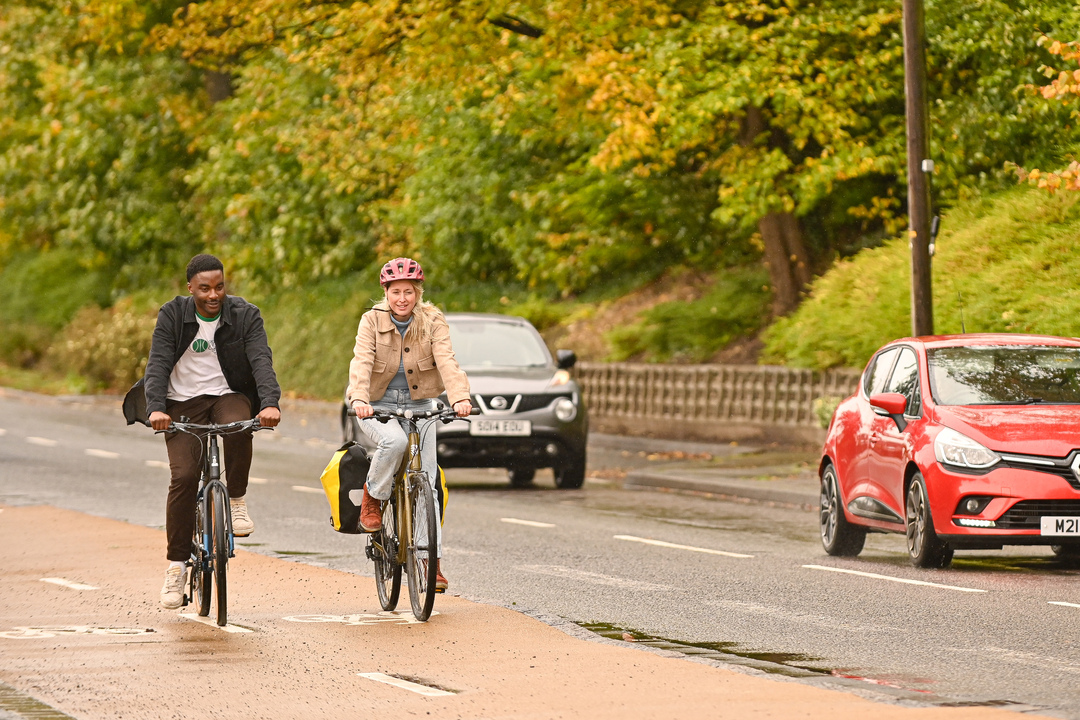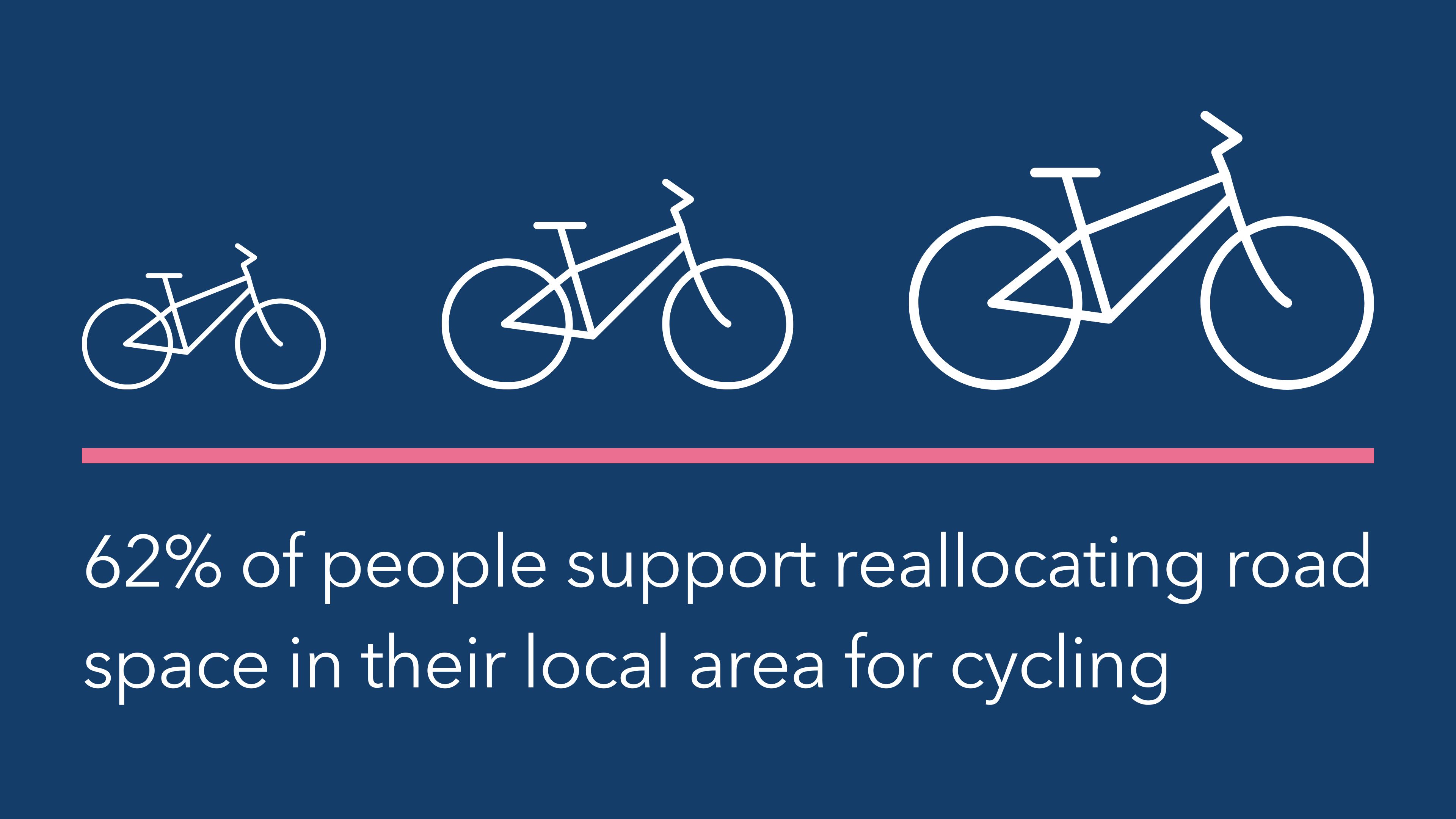Monitoring/Policy
On average only 18% of people from minority ethnic backgrounds in Scotland have access to a bike
15 March 2024
New research shows just 18% of Asian, Black and other minority ethnic groups in Scotland have access to a bike, compared with 37% of the general population.

Cycling Scotland has been carrying out national, longitudinal research into people’s attitudes and behaviours towards cycling in Scotland since 2017. In Autumn of 2023, we commissioned an additional wave of research with people from minority ethnic backgrounds, to better understand their experiences, as our main survey is weighted to reflect general population demographics[1].
The analysis reveals that access to bikes and confidence in using bikes stand out as significant barriers to cycling for minority ethnic groups.
Bike ownership is considerably lower, with less than one in five (18%) having access to an adult bike in their household. This compares with over one in three (37%) of the general population reporting having a bike in their household.
There were also signs that a lack of confidence in using a bike prevents more people from minority ethnic groups from cycling. Of those respondents who said they would consider cycling more in future, 49% said they would travel by bike more if they were more confident, compared with 37% of the general population. Additionally, more than two thirds (69%) said they would cycle more if they had a well-maintained bike, compared with 48% of the general population.
People from minority ethnic backgrounds were more likely to say that not being able to ride a bike is an important factor preventing them from cycling more for journeys (28% compared with 18% in the general population).
Despite these barriers, those from minority ethnic backgrounds are just as likely to recognise the widespread benefits of cycling for themselves and wider society, with 90% from the sample agreeing that people who cycle improve their health and wellbeing, and 66% supporting reallocation of road space in their local area for cycling.
Scottish population-wide analysis – how attitudes towards cycling are changing
More than 1,000 people across Scotland were interviewed face-to-face in September and October 2023. Consistent with previous waves, the 2023 research revealed a strong consensus around the benefits of cycling to individuals and wider society with two thirds of people (68%) agreeing that Scotland would be a better place if more people cycled.
And a third of people (32%) regularly or occasionally cycle either for transport or leisure. – marking a move in the right direction since the first wave of this research in 2017 (27%).
The biggest barrier to more people cycling continues to be road safety - more than two thirds of people in Scotland (70%) consider not feeling safe enough on the roads as a significant barrier to cycling.
Encouragingly, the research uncovered significant support for more efforts to make cycling safer, with nearly two thirds of people (62%) expressing support for reallocating road space to provide more dedicated space for cycling in their area.
Strong consensus on cycling’s benefits to individuals and society
There was continued high level of agreement around cycling’s benefits for the environment, with four in five people (78%) saying it would be better for the environment if more people cycled (up from 72% in 2017).
People also placed value on cycling allowing them to combine exercise and transport at the same time, with four in five (78%) of those interested in cycling more regularly agreeing that this was a motivating factor for cycling more often.
Recent examples of successful road reallocation projects, like the South City Way route in Glasgow, have shown just how effective these efforts can be, with such interventions proven to support higher rates of cycling.

[1] Quotas were set on other key demographic metrics including age, gender, socio-economic group, to allow comparison with the main study. 1,020 respondents in main population sample; 306 in minority ethnic boost.
